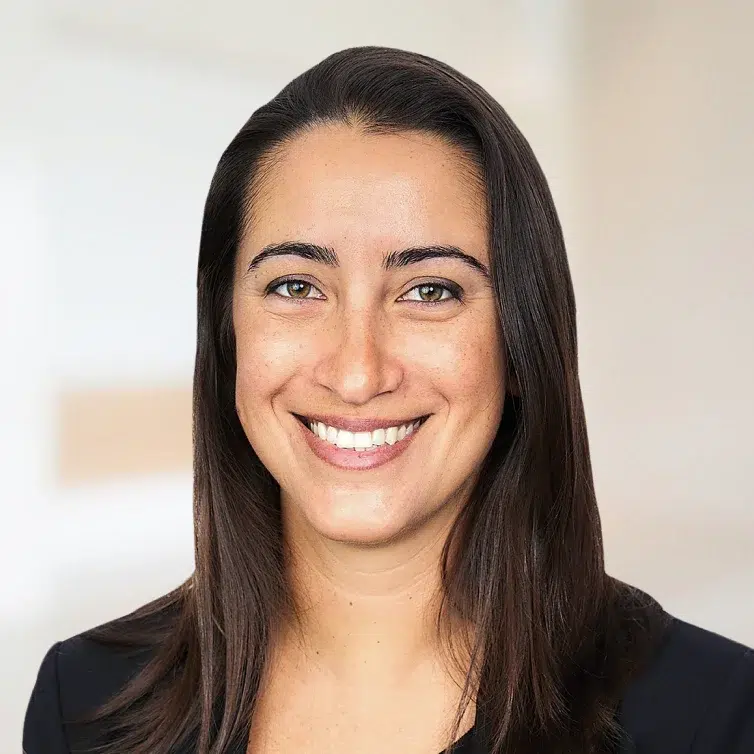
For many parents, giving their children or grandchildren a head start in life is one of the most meaningful and satisfying goals they can accomplish. For the families we work with, saving for college is part of the plan, but it doesn’t stop there. They’re looking to pass their wealth down to their minor children in a meaningful way.
When it comes to providing for your children’s or grandchildren’s futures, the first thing to do is develop a plan, or purpose, for the money. This will help you determine how much and what types of assets to transfer to them.
To start, ask yourself a few questions: Is saving on income taxes or estate taxes important? Do you want to have a little more control or say as to how the money is used? Do you have securities that you want to give to the children? If you’ve already been saving for college, should you consider another type of account for additional assets?
Depending on your personal objectives and hopes for the child, you have several options. Here are the pluses and minuses of the four most common methods used to transfer wealth to minor children:
1. 529 college savings plans
If you’re certain that your little one will pursue higher education, then a 529 savings plan is a smart way to give to children. Currently, a public in-state college averages more than $100,000 for five years for tuition, room and board, and some elite universities cost more than $70,000 a year. So starting to save early is important.
A 529 plan is a state-operated investment plan that offers a number of advantages. You typically do not need to reside in a particular state to save in its 529 plan. For example, you don’t have to live in Utah to open a Utah 529 plan account.
Benefits
- Tax savings: Income in the plan grows and can be used to cover qualified educational expenses tax-free. And more than 30 states offer some combination of full or partial state tax deductions for contributions.
- You are the owner of the account, not your child. You can manage the investments yourself, or hire someone else to do it for you.
- It is not counted as part of your estate for estate tax purposes.
- You can change the beneficiaries and have multiple plans for the same beneficiary.
- Qualified institutions include colleges, universities, vocational schools and any other type of postsecondary institution that is eligible to participate in federal financial aid programs.
- You can front-load five years’ worth of the annual gift tax exclusion amount in one year. For 2021, the annual gift tax exclusion is $15,000 per person, so you can contribute up to $75,000 in one year. Your spouse can also contribute the same amount, so it’s possible to superfund a 529 account with as much as $150,000 in a single year. If you choose to superfund a 529 account, you will have to file a gift tax return for the year of funding and elect to spread the gift over a five-year period.
- 529s have high contribution limits, minimal impact on financial aid eligibility, and no income limitations for contributors.
Drawbacks
- If distributions do not go toward qualified educational expenses, then you’ll pay ordinary income tax on the growth and a 10% penalty. So if the child decides not to further their education, then be prepared to give this money to another qualified family member or pay the price to take the money back.
- If you superfund a 529 account and don’t survive the five-year period, the portion of the gift that would have applied to years after your passing will be brought back into your estate and could be subject to estate taxes.
2. UTMA/UGMA accounts
These acronyms stand for Uniform Transfers to Minors Act and Uniform Gifts to Minors Act. UTMA and UGMA accounts are similar in that they are statutory custodial savings accounts for minor children. Generally, the child gains full access to the funds when they reach the legal “age of majority” for the state in which the account was created, typically 18 or 21. The difference is that UGMAs are limited to holding financial assets, such as cash and securities, while UTMAs are more flexible as they can also hold almost any other type of asset, including real estate and fine art.
Benefits
- You can manage the account or appoint a custodian.
- Because money placed in an UGMA/UTMA account is owned by the child, earnings are generally taxed at the child’s — usually lower — tax rate, rather than the parent’s rate, until a threshold is met. For some families, these savings can be significant.
- There’s no limit to contributions.
- You don’t need to hire an attorney to set one up.
Drawbacks
- Contributions become the children’s assets and are irrevocable.
- Because these are the child’s assets, it can significantly affect their eligibility for need-based financial aid for college.
- If you should die while you are custodian of the account, it becomes part of your taxable estate. This can be avoided, however, by naming someone other than yourself as custodian. For example, a grandparent can name a parent.
- Once the child reaches the age of majority, he or she has control of the assets and can use them as they wish, which you may not find desirable for a young adult.
3. Crummey Trusts
Named after Clifford Crummey, the first successful taxpayer to use this form of trust, a Crummey Trust allows for the parent to make contributions for the benefit of their minor children that apply toward the annual gift tax exclusion while also placing limitations on when and how the child can access the funds.
Crummey Trusts can also protect assets by allowing the grantor to include conditional terms or requirements to be met in order for a child to receive distributions.
Benefits
- You can decide to give a child access to the income and/or principal at an age above the legal state age that applies to UTMA and UGMA accounts. The child does not have access to the income on the assets until then.
- You may have the ability to serve as trustee.
Drawbacks
- The child has 30 days after the contribution to withdraw and use the assets as they wish. However, the kids rarely exercise that right and the assets become part of the trust after that period.
- Administration of the trust takes more involvement. For example, notices must go out when a contribution is made to ensure the gift qualifies under the annual exclusion.
- It requires help from an attorney to set up, as well as associated legal fees.
4. Grantor Retained Annuity Trusts
A Grantor Retained Annuity Trust (GRAT) offers the opportunity to pass assets to children in a tax-advantaged manner. As the name suggests, the grantor (in this case, you) retains the right to receive a certain number of annuity payments from the trust, and when the term of the GRAT ends, what is left in the GRAT is distributed to the trust beneficiaries (the children) and is excluded from your estate. Annuity payments are based on an interest rate set by the IRS (Section 7520). Ideally, the contributed assets appreciate tremendously, and the distributed amount will be significantly more than what you contributed. For example, stocks are usually a strong candidate for a GRAT if significant appreciation seems likely.
Benefits
- Depending on the appreciation of the assets, you can potentially move large amounts of assets out of your estate and to your child, avoiding estate taxes.
- Currently, the Section 7520 rate is low, under 3%, making it likely that appreciation of the GRAT assets will outpace this interest rate, resulting in a larger remainder balance to be transferred gift tax-free to your child.
- Typically, you pay the income tax on GRAT assets, but the tax payment is not considered a taxable gift. Therefore, GRAT assets continue to grow during the GRAT term.
Drawbacks
- The grantor must outlive the term of the GRAT for it to be successful.
- A GRAT requires help from an attorney to set up, along with associated legal fees.
- A GRAT is an irrevocable trust, meaning that unforeseen circumstances may make the GRAT less attractive in the future.
- If the assets transferred into the GRAT do not grow as much as the 7520 interest rate, the assets would revert back into the estate of the grantor and be subject to estate tax. In this case, any legal fees that were paid to establish the GRAT would not be recouped.
- Because of the rules related to generation skipping transfer taxes, a GRAT is not an efficient way to transfer assets to grandchildren.
Talk about it
Remember that gift taxes apply to any gifts over $15,000 per donor to an individual each year. Because there are so many nuances to these methods, it’s important to talk with your financial and tax advisors to help you select the appropriate strategy for your family. Depending on the strategy, you may also need to consult an estate planning attorney.
Once you’ve decided on how to pass down your wealth, I encourage you to sit down with your children or grandchildren and explain to them how you’re thinking through financial decisions. Obviously, they need to be old enough to understand, but the conversation can be done in an age-appropriate way. It could get more detailed as they get older. Your advisor should be able to offer tips and resources to help with this.
And as the kids grow up, it’s also important for you to understand what their dreams and goals are, so you can be sure you’re giving in a way that will have special meaning and truly benefit them.
Editor’s note: This article has been updated since its original July 14, 2017, publication.

 Talk to us
Talk to us 
















